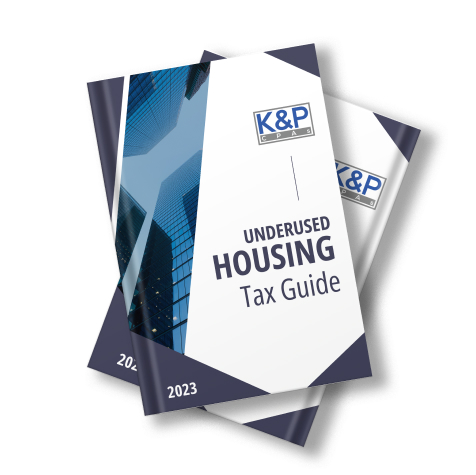Underused Housing Tax (“UHT”)


UHT is an annual federal 1% tax on the ownership of vacant or underused housing in Canada. While the government’s aim was to target non-Canadians, the filing requirements are broad and capture many Canadian persons, not just non-citizens, and non-permanent residents.
Many Canadian persons will be exempt from tax; however, you must file to claim the exemption, unless you are an “excluded owner”.
There are significant implications for failure to file:
Toronto’s Vacant Home Tax or British Columbia’s Speculation and Vacancy Tax are similar but separate municipal and provincial programs – they are not the UHT. If you live in an affected area, you may need to file these returns separately.
A “residential property” means a property in Canada defined as:
| Examples of “residential property” | Examples that are not “residential property” |
| – detached or semi-detached house – duplex or triplex – laneway or coach house – non-commercial cottage, cabin, chalet – residential condominium unit – rowhouse unit or townhouse | – quadruplex (4+ units) – high-rise apartment building – hotel, motel, inn – motor, mobile or park model home – board or lodging house – commercial cottage, cabin – building >50% for retail / office that contains an apartment |
The are many exemptions from paying UHT, however, you must file a UHT return, to claim the exemption.
Exemption (a): Owner
Exemption (b): Occupant of the residential property
Exemption (c): Availability of the residential property
Exemption (d): Location and use of the residential property
If you’ve gone through the above steps and you cannot claim any of the exemptions, you must pay UHT for the calendar year by calculating:

You can elect to use fair market value for the tax base, an election must be filed, and the owner must obtain a written appraisal (for the purpose of UHT) of the property by an accredited, professional, real estate appraiser operating at arm’s length to the owner.
Failure to file the UHT return is calculated at the greater of:
Form UHT-2900 must be filed by April 30th of the following year. If April 30th falls on a weekend or public holiday, your return is due the next business day.
The CRA recognizes that there are challenges for affected owners in the first year of UHT administration, and has provided a filing extension and penalty and interest relief if the return and taxes are paid by October 31, 2023.
You must file the UHT return to claim the exemption, a failure to file return will result in loss of the exemption and interest at the prescribed rate.
To complete the Form UHT-2900, you will need the following:
1. Obtain the proper tax identifier number
| Individual | SIN or ITN |
| Corporation | RU number (contact the CRA, or via Business Registration Online) |
| Partnership | Partnership account number |
| Trust | Trust account number (if applicable) |
2. Historical closing package when the property was first acquired
3. Property tax assessment
4. Land registry documents or title search as of December 31
5. Recent or comparable sales price on or before December 31
6. Appraisal report, if FMV election is chosen
We have hosted a webinar dedicated to Underused Housing Tax where we’ve covered key points and answered questions.

The Canada Revenue Agency (CRA) has come under renewed scrutiny following a critical 2025 report from the Auditor General of Canada. While taxpayers have long been aware of service challenges at the CRA, this report confirms systemic issues that affect every taxpayer who release on CRA contact centres or online tools for guidance.
Despite the prorogation, the Canada Revenue Agency (“CRA”) has stated it will continue to administer the proposed capital gains inclusion rate increase as if it were law, even though it has not received Royal Assent.
The Government of Canada has announced temporary goods and services tax / harmonized sales tax (“GST/HST”) relief {{view-more}} on children’s clothing, toys, games, books, food and beverages.
Canadian businesses will be required reduce GST/HST to zero on a variety of qualifying products between December 14, 2024, to February 15, 2025. {{view-more-end}}
Capital gains inclusion rate The capital gains inclusion rate will increase from 50% to 66.67% for capital gains realized on…
K&P CPAs, a boutique licensed public accounting and valuations firm based in Toronto, Canada, is pleased to announce its adoption…
Introduction Canada is currently experiencing a significant demographic shift that is reshaping the landscape of wealth distribution: the inter-generational transfer…
Introduction Clients often approach us inquiring about what a business valuation entails. Their interest stems from many situations that include:…
Introduction Business owners often benchmark their businesses against a rule of thumb to identify a preliminary valuation for their business….
Businesses must repay their CEBA loan by January 18, 2024, to be eligible for the forgivable portion of the loan….
Certain trusts, including bare trusts, that were previously not required to file a trust return, will be required to do…
Bare trusts will be required to file a T3 Return, and report beneficial ownership information on Schedule 15. The new…